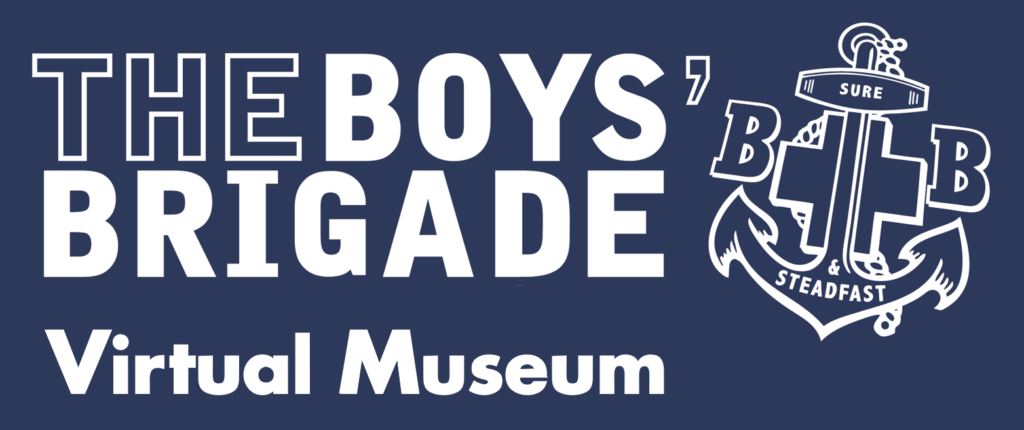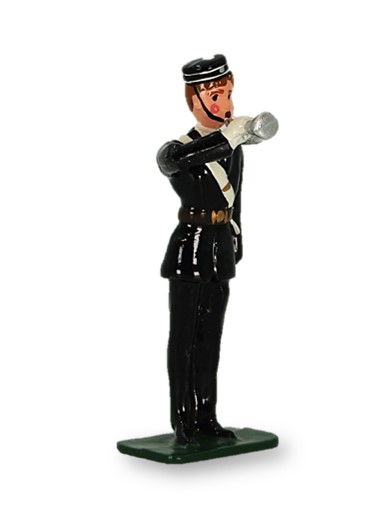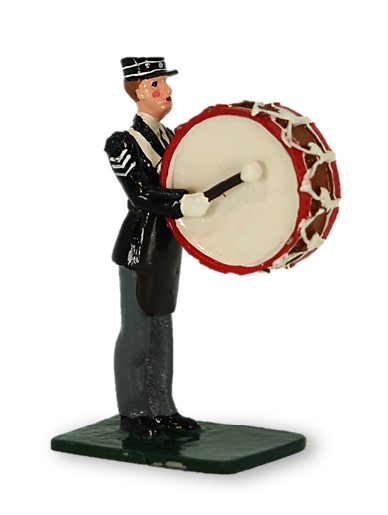1914 – WWI War
In the years before and after 1883, the youth of Britain were being inculcated with the concept of Britain’s mighty empire being invincible. The heroes of empire were the stuff, not only of newspapers and magazines, but also of popular adventure filled books. The Boys’ Brigade did nothing to discourage this view. The stories of glamorous adventure and bravery, epitomised by those penned by author G.A. Henty, were extremely popular, and Henty was honoured by being made an Hon. Vice-President of the Brigade. BB company libraries were stocked with these books filled with examples of ‘Christian manliness’, some written by serving BB Officers, such as Battalion Secretary and professional author F.P. Gibbon. Normal BB activities sometimes included ‘war games’ like skirmishing.
It was no surprise then, that upon the declaration of war with Germany in August 1914, when many BB Boys were still in annual summer Camp, leaders and senior boys were among the first to get to their local recruiting office to volunteer for military service. Although the BB had opted out of the Government’s Territorial Cadet Scheme, unlike the Church Lads’ Brigade, Jewish Lads’ Brigade and Catholic Boys’ Brigade, war was now a different matter. Britain was under threat. Some BB Captains marched senior members and ex-members to the local recruiting office, led by the company band. Many were rejected because they were under the age of eighteen years.
BB boys and ex-members made excellent recruits for what was billed as Britain’s ‘New Army’ because they knew the meaning of discipline, they were fit, could drill, and wear uniform. They had learnt to shoot rifles and even use field guns. They could, blow bugles, and send signals using morse or semaphore, and camping was something enjoyed for years by BB boys. In some towns whole military companies were formed from BB members. In Glasgow an entire Battalion, the 16th Highland Light Infantry, was recruited primarily from BB Boys and officered by BB men. Within a few months, these young BB lads would find out that their foreign adventure was far from being glamorous, when they finally arrived at the frontline.
For the first time, BB boys not old enough for military service, were considered to be part of the ‘home’ front. In 1914, the BB Executive published a pamphlet entitled ‘A Word about the war’ asking boys to be ‘Steady, ‘Kind’ & ‘Helpful’. With the nation being under attack, often, boys wanted to do much more than to be helpful to their mother’s, finding many ways to serve their country. They did this by collecting newspapers or scrap metal for recycling, planting vegetables, helping nurses and porters at auxiliary hospitals, volunteering to be ‘patients’ to help train medics, guarding important infrastructure, such as bridges and gasometers at night, and sounding the ‘All Clear’ on their Bugles following raids from enemy bombers and Zeppelin airships. The BB produced a special ‘National Service’ badge to reward time spent serving on the home front. Such was the pressure to help, that from 1917, some BB companies were allowed to register as ‘cadets’.
By the time of the Armistice in 1918, it was clear that thousands of former BB boys and leaders had died fighting for their country; they would never return home. At least twelve were awarded the Victoria Cross for their bravery.





